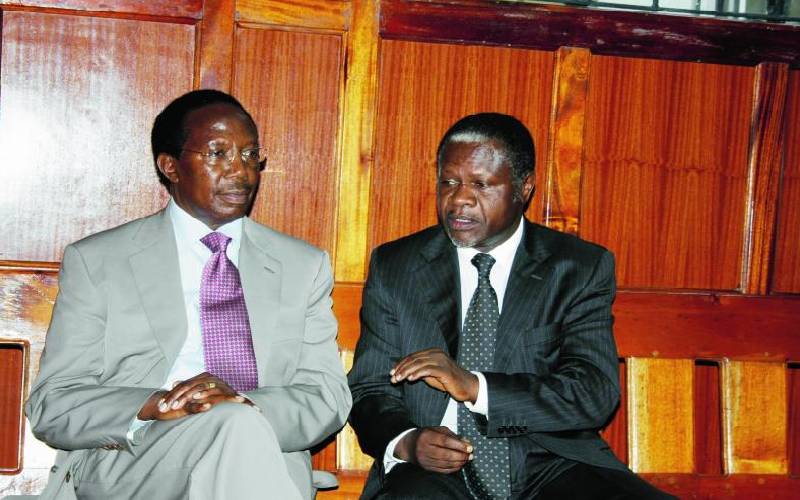×
The Standard e-Paper
Kenya’s Boldest Voice

Former Finance Minister Chris Okemo and former Kenya Power boss Samuel Gichuru at a Nairobi Law courts in 2016. [File, Standard]
The Supreme Court has stripped the Attorney General of the powers to initiate extradition proceedings against former Finance Minister Chris Okemo and former Kenya Power boss Samuel Gichuru.